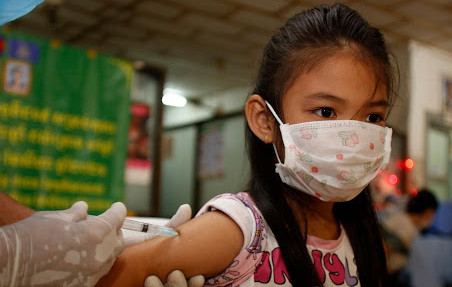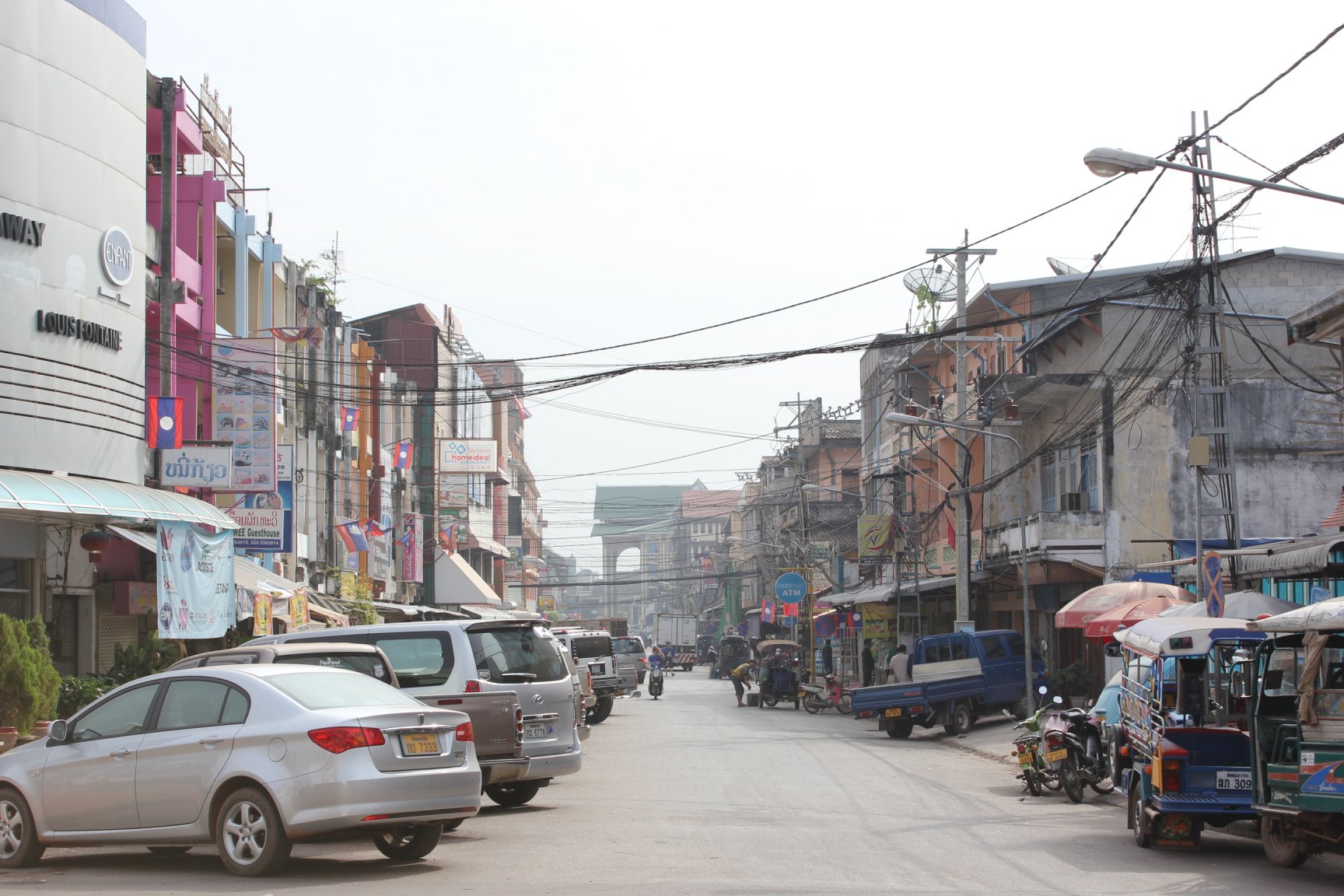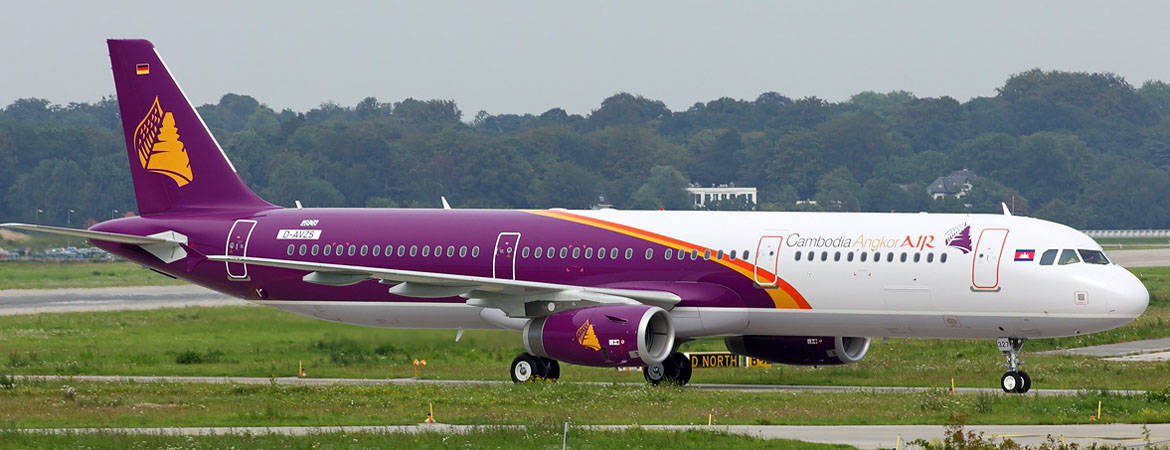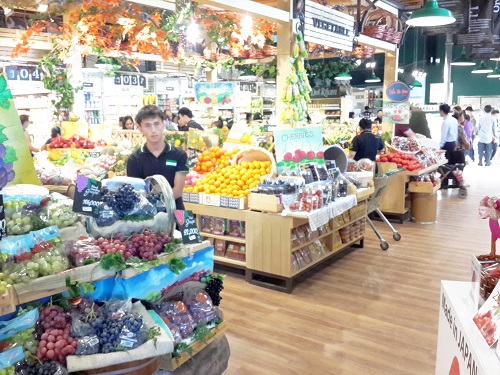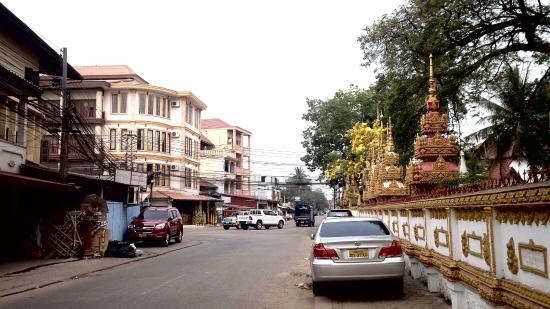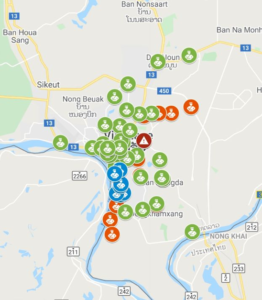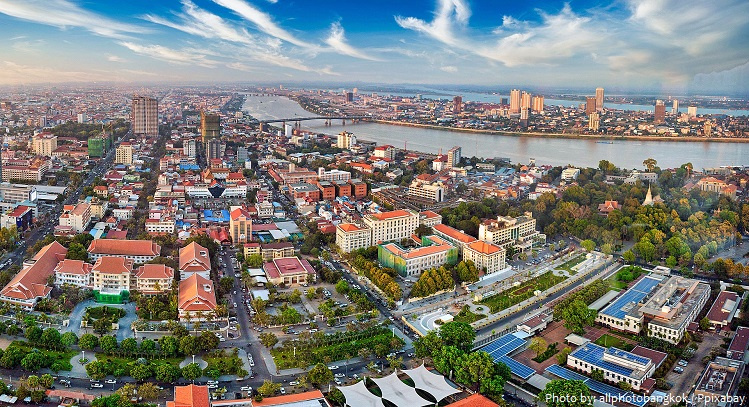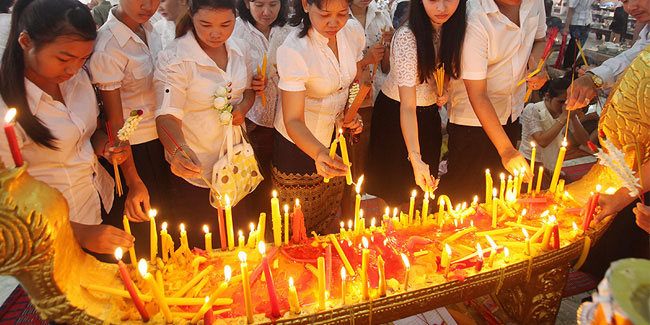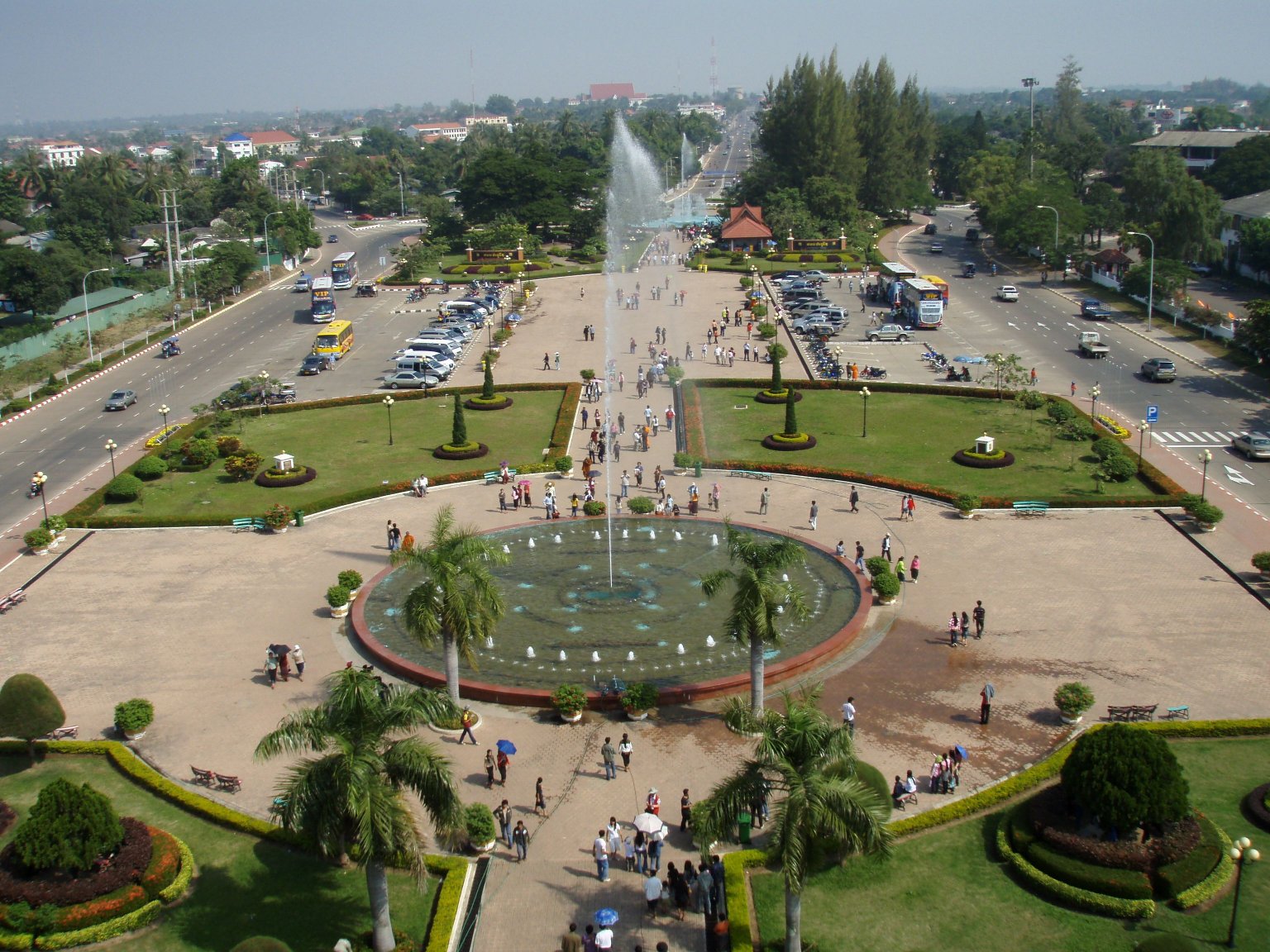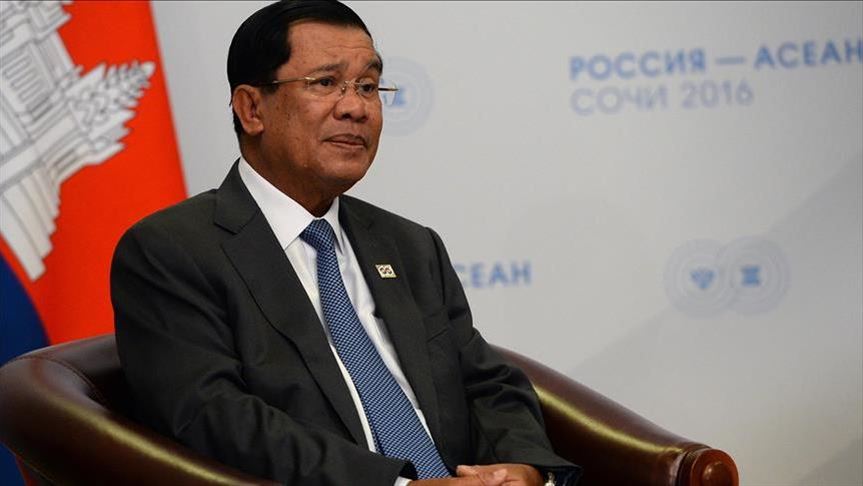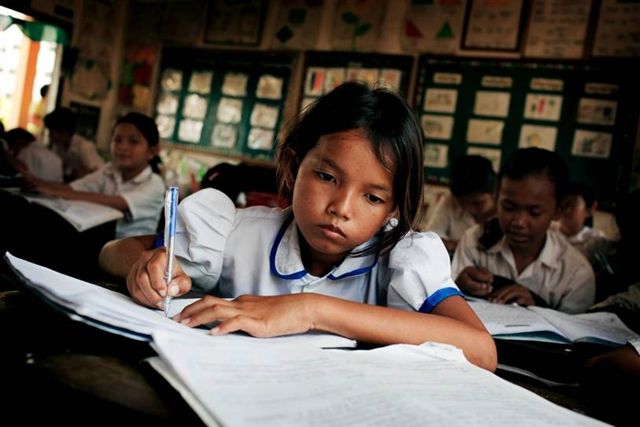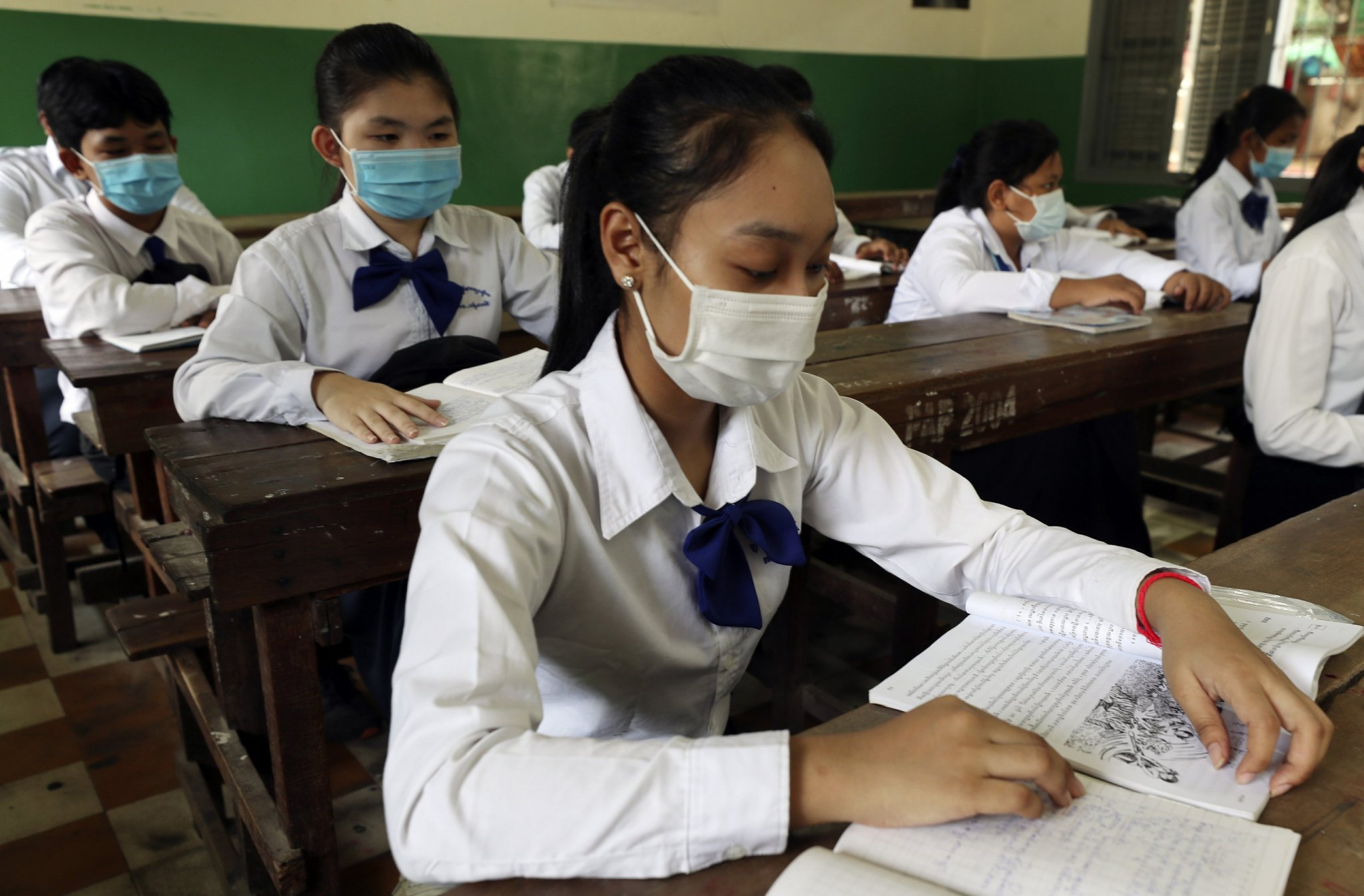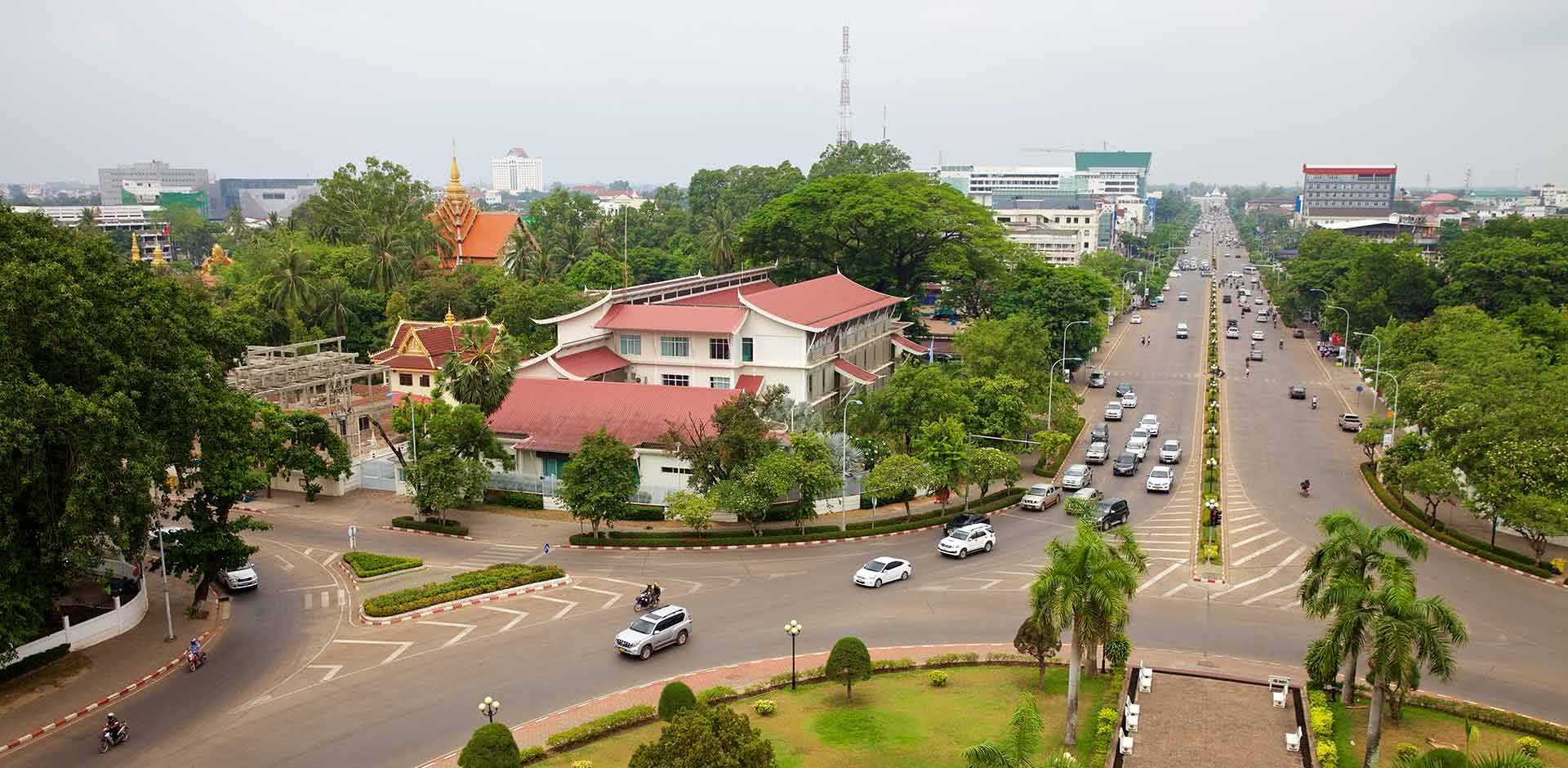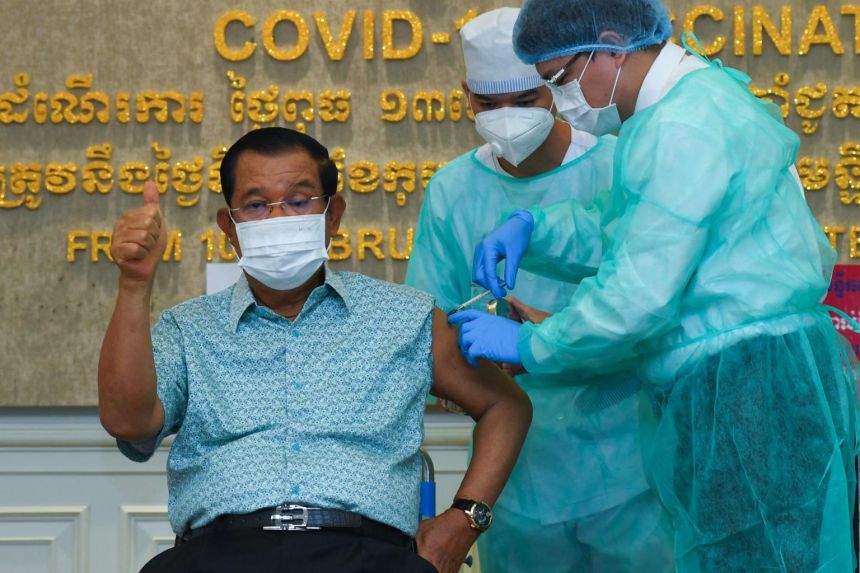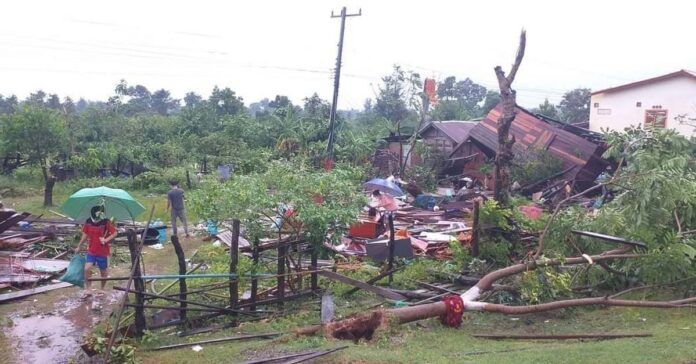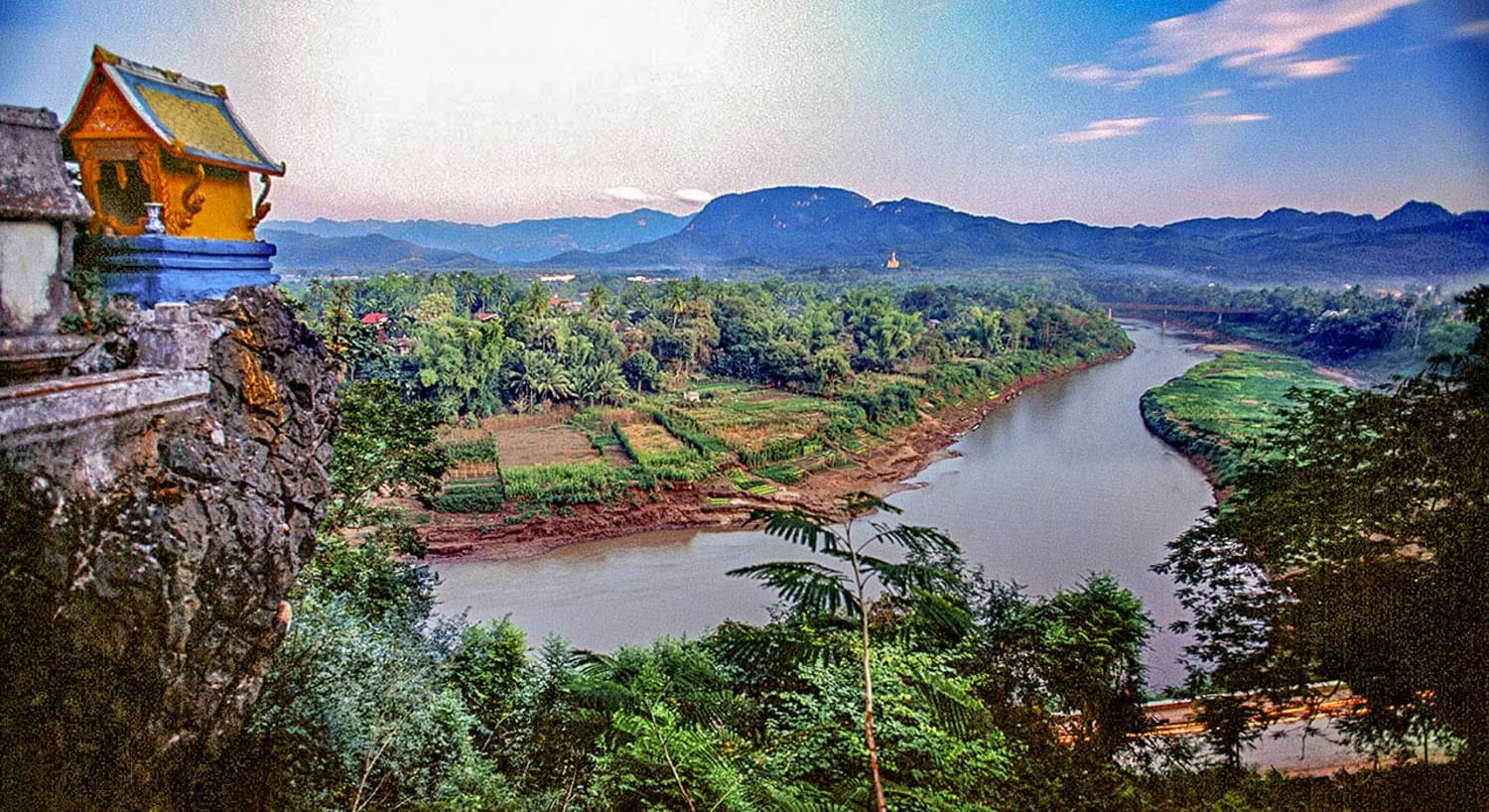-
Posts
520 -
Joined
-
Last visited
Content Type
Profiles
Forums
Downloads
Everything posted by ASEAN NOW
-
Dr. Bounfeng Phoummalaysith, the Lao Minister of Health, said health officials hope to vaccinate youngsters aged 12 to 17 years in the near future in order to reopen schools. He made the remarks during a press conference held yesterday by the National Taskforce for Covid-19 Prevention and Control. Since the new wave of Covid-19 began, schools across Vientiane and a number of provinces have been closed, with pupils studying remotely or online. However, authorities have acknowledged that many kids have difficulty accessing or utilising online learning resources. Dr. Bounfeng Phoummalaysith remarked, “After the lockdown is lifted, we urge all citizens to get vaccinated as soon as possible.” He continued, "We have a plan to vaccinate children aged 12 to 17 so that schools and educational facilities can resume." Authorities have already authorized vaccinations for students in their final year of secondary school or people aged 17 and up who will travel for the purpose of education or who are preparing for tertiary entrance examinations at universities or other educational institutions, according to a notice issued by the Ministry of Health last week. Women who are more than 12 weeks pregnant can also be vaccinated against Covid-19, according to the notification. Meanwhile, the ministry has banned any third Covid-19 vaccine “booster” shots until the whole eligible population has been vaccinated.
-
Residents in Vientiane Capital have expressed unhappiness with some of the limitations imposed as part of the sudden shutdown that began on Sunday. Residents of Vientiane Capital are barred from leaving their houses or going within the city save for critical duties such as shopping for food, obtaining medicine, or visiting hospitals under the new lockdown, which will last until September 30. After many citizens failed to stay at home, police strengthened checkpoints in Vientiane Capital yesterday to reduce traffic in the city. Meanwhile, the Department of Industry and Commerce ordered supermarkets and other retailers to close on Monday in an effort to reduce crowding at shops and markets, which had the unintended effect of causing even more crowding as residents rushed to buy household goods before the order went into effect. Authorities promptly overturned their decision, issuing a new order yesterday allowing supermarkets and minimarts to reopen with severe limits on the number of shoppers and hours of operation, ostensibly acknowledging the problem. Many locals, however, are disappointed with how the lockdown was implemented, claiming that they did not have enough time to prepare due to a lack of planning and hasty facility closures. Hundreds of automobiles took to the roads yesterday, causing police to strengthen checkpoints across the city, according to local news outlets. “We don't want to breach the government's lockdown,” one guy told the Laotian Times, “but we don't have a choice because many companies have remained open.” If we don't show up for work, our salary will be lowered and we won't get any help,” he explained. According to a retailer in Vientiane, she is unable to close her shop as ordered by authorities because she requires revenue in order to repay a loan she took out to purchase a car. She claims there is no mechanism in place at the finance institution to help debtors during the lockdown time. “What good is a rigorous lockdown if the government fails to provide us with even the most basic of services? “Many of us have had issues since the first Covid-19 outbreak and have been struggling ever since,” she explained. Dr. Bounfeng Phoummalaysith, the Lao Minister of Health, addressed these concerns yesterday, saying that the benefits of the lockdown outweigh the expenses. Dr. Bounfeng explained, “What we get out of the shutdown is a society that is protected from the unregulated proliferation of Covid-19.” “The next stage is to ensure people's health, safety, and well-being, as well as to lessen hospital overcrowding and the pressure on medical professionals, quarantine facilities, and authorities,” he continued. While Laos has implemented various financial regulations and tax incentives for some firms, the general population is unaware of how to obtain aid or what forms of assistance are available. Simultaneously, state-run utilities such as power and water supplies have not been discounted as they have been in prior lockdowns, causing problems for the most needy.
-
After asking for aid on TikTok, a Cambodian woman gained the attention of the Cambodian government and was rescued. The Cambodian woman was rescued from China after four years of maltreatment by her Chinese husband, during which time she was forbidden from contacting her relatives. She called for help from the Prime Minister via the popular app TikTok, unable to take the load and agony. “Please Samdech Hun Sen, assist me return to Cambodia,” she begged in the TikTok video. The Cambodian Ministry of Foreign Affairs and Chinese authorities intervened to help after her appeal for help was disseminated through the app and gained the attention of the administration. In a report to local press on September 21, the Secretary of State of the Ministry of Interior, Chou Bun Eng, verified this. The victim's identify is unknown. According to the Secretary, a 25-year-old female from Nanchang, Jiangxi Province, China, was at Sopeak. The victim is currently in the custody of Chinese police, who are conducting legal actions. “Professional officers are on the lookout for the brokers,” she added.
-
Thong Khon, Cambodia's Minister of Tourism, has urged Sky Angkor Airlines to prepare to restore tourist-passenger flights as soon as the Royal Government of Cambodia is ready to reopen "safe" international tourism. On September 21, 2021, the Minister of Tourism presented his statements during a meeting with Sky Angkor Airlines. “In the near future, the Royal Government of Cambodia has been planning to reopen international tourists (vaccinated tourists) in compliance with the safety tourism mechanism,” the Minister said. Prime Minister Hun Sen will officially proclaim the launch of international "safe tourism" in the near future, according to the Minister. The Minister explained the Cambodian government's plans for overseas tourists. Tourists will only be required to quarantine for 7 days at a safe tourist area where COVID-19 is not present. As a result, the Minister authorized Sky Angkor Airlines to be prepared to bring tourists and international travelers to Cambodia again. The Royal Government of Cambodia, according to the Minister, has developed a "roadmap on the restoration and promotion of tourism in Cambodia during and after the COVID-19 crisis" as well as a master plan for tourism development in the provinces of Siem Reap and Mondulkiri. According to him, the Ministry of Tourism has already created a strategic plan document for the opening of safe tourism in the COVID-19 phase, which it has also presented to the Royal Government for assessment and approval. After Prime Minister Hun Sen stated his aim to restore safe tourism in Cambodia, Sky Angkor Airlines' CEO returned to the Republic of Korea to work with tour firms in Korea and China to promote tourists to visit Cambodia, according to Koo Taeoh, General Manager of Sky Angkor Airlines. The itinerary of Sky Angkor Airlines offers direct flights from Cambodia to numerous Chinese regions, as well as Vietnam, Japan, the Republic of Korea, and India, as well as domestic flights between Phnom Penh and Siem Reap and Phnom Penh-Sihanoukville.
-
The Department of Industry and Commerce in Vientiane's capital has reversed a controversial decision to close supermarkets and other stores. Various retail establishments, including supermarkets, will be authorized to open at specific times and under certain conditions, according to a notification issued today. “Import-export firms, department stores, supermarkets and minimarts, fresh markets, small retailers, and petrol stations in Vientiane Capital may operate as usual in delivering goods and services to consumers from September 21 to September 30,” according to the announcement. Customers must receive temperature checks, be given hand gel, and wear facemasks at all times for such firms to operate normally. At any given moment, only a certain number of consumers may enter, and retailers must ensure that shoppers maintain a social distance of at least one meter. Shelving or stock tables must be separated by one meter, and stores must be kept clean at all times. Hours of Operation -Fresh markets may open from 6am to 7pm. -Department Stores may open from 9am to 8pm. -Supermarkets may open from 9am to 8pm. -Minimarts may open from 9am to 8pm. -Small retailers may open from 9am to 8pm. -Wholesalers may open from 9am to 8pm. Only market stalls selling agricultural commodities, household items, and takeaway meals are permitted to open at fresh markets, while all other stalls must remain closed. Petrol stations can continue to operate normally, but they must implement Covid-19 preventive measures and maintain a social distance. Meanwhile, night markets, clothes stores, electrical appliance stores, and other non-essential establishments will be shuttered.
-
After many citizens failed to stay at home, police have tightened checkpoints in Vientiane Capital to reduce traffic in the city. After numerous violations of the stay-at-home order were reported since the lockdown began, major roads and intersections have been closed off by police-staffed checkpoints across the capital. Commuters were forced to turn back today as Vientiane police increased their blockades across the city, resulting in videos of traffic bottlenecks and furious motorists circulating on social media. Despite the stay-at-home order, many residents hit the roads yesterday afternoon to conduct last-minute shopping trips before a new order shutting down supermarkets and other stores took effect. Residents disregarded lockdown restrictions this morning, attempting to attend their office or business, while delivery services were reportedly denied entry via police checkpoints, causing confusion. Many people have claimed that the lockdown came on too quickly and that the public was not given enough time to stock up on supplies. One neighbor told the Laotian Times, "We weren't given enough warning." “I needed to grab stuff left at my office, and then I heard that supermarkets would be closed, so I had to drive through checkpoints to get to the supermarket,” she explained. Authorities, on the other hand, claim that the emergency lockdown was required to prevent widespread Covid-19 infection in the community after multiple clothing manufacturers became hotbeds for the virus. Several provinces are currently on level two alert, with other provinces on the verge of reaching level three, according to Dr. Bounfeng Phoummalaysith, Lao Minister of Health, who spoke during the National Taskforce for Covid-19 Prevention and Control's announcement this morning. He claimed that the only way to keep Vientiane Capital from achieving Level Three status, where community transmission of Covid-19 is not limited to a single site or population, and there is evidence that transmission will be broad and continuous, would be to impose a rigorous lockdown.
-
The building of the Dara Sakor International Airport in Koh Kong is expected to be completed in the coming month, with a test run scheduled for the end of the year. With a $350 million investment, the Chinese business Tianjin Union Development Group (UDG) is building the Dara Sakor International Airport. Long-haul aircraft such as the Boeing 777 and the Airbus A340 are said to be able to land at the airport. The airport is located in Botum Sakor District and is stretched out over a 4.5-hectare area of land. The project is part of Dara Sakor Resort's multibillion-dollar Chinese growth strategy. On September 21, the Minister of the Civil Aviation Secretariat, Mao Havannal, revealed this during a visit by representatives of the Dara Sakor International Airport Construction Company. Representatives from the development company mentioned during the meeting that preparations are being made for the airport's construction to be completed in October. They also indicated that preparations are being made for the airport's operating testing to begin on December 30.
-
Foreign experts say Cambodia's economy would benefit greatly if the government implemented the prime minister's proposal for a seven-day quarantine, especially if it applied to both businesspeople and tourists. The country is currently closed to foreign tourists, and business visa holders must stay in a hotel for at least 14 days. Mr Hun Sen said on Friday that travelers who are completely vaccinated should be permitted to visit the Kingdom and spend the first week exploring the area around their lodgings. “Those who have been vaccinated can visit Cambodia for seven days upon arrival, not in a room: they can stroll around the city,” Prime Minister Hun Sen remarked. The approach is more akin to Thailand's sandbox program than to a quarantine. Tourists who have been fully immunised can travel to Phuket, Koh Samui, and other famous places and leave their hotels to explore the resort. Thailand also intends to welcome international visitors to its capital, Bangkok, as soon as this month. However, due to an increase in local Coronavirus infections, local officials have suggested that the date be put back to the beginning of next month. Travelers who spent two weeks in Cambodian hotels say the government should include Phnom Penh in any reopening plan so that business travelers may make the most of their time there. Even after receiving two doses of AstraZeneca vaccine in Cambodia and two shots of Moderna vaccine in his home nation of Canada, one regular business arrival in Cambodia who is staying in a quarantine hotel stated he couldn't understand why he had to spend 14 days in isolation. He stated, "This quarantine is not productive." “A seven-day sandbox plan would be fantastic. Working in this manner isn't a problem for men. I'm attempting to hold meetings via Zoom, but the internet is so bad that it's a pain. It would be nice if they could reduce it to four days for fully vaccinated people, as Argentina did for a period, but the seven-day sandbox would also be fantastic. If they strapped a wrist monitor to my wrist and told me I could go one kilometer from the hotel, I'd make restaurant reservations and schedule four to five meetings every day. It would help the economy,” the man, who did not want to be identified, claimed. “If business travelers and investors could come to Cambodia more freely, the economy would benefit immensely. If we can invite them back for physical meetings, site visits, and introductions, as well as as guests who normally spend a lot of money during their visits, we can help the economy recover. According to EuroCham Cambodia Chairman Tassilo Brinzer, "such a statement may effectively convey that Cambodia is an open country with a rapidly modernizing economy." “Other countries with similar high vaccination rates are already opening up, while the healthcare system's greater vulnerability need continuing attention. I'm confident the government is carefully examining all arguments and evidence." Others simply wish to make it easier for family members to visit. More over three-quarters of Cambodia's population has been vaccinated, and Phnom Penh has one of the highest per-person immunization rates in the world.
-
As the number of cases in Siem Reap continues to rise, additional places are designated as "red zones." Due of apathy regarding safety measures against Covid-19, the Governor of Siem Reap Province has declared the entire city of Siem Reap a "red zone." The population's apathy and negligence has allowed the pandemic to spread unchecked. More locations in the province have been designated as "red zones" as the pandemic spreads and the community outbreak grows. For one week, the villages of Kampong and Sramor in Chi Kreng Commune, Chi Kreng District, were designated as "red zones." The communities will be closed from September 19 to September 25, 2018. During the length of the designation, measures such as travel restrictions and movement limitations will be in effect.
-
In mid-August, Cambodian migrant workers in quarantine camps and border testing regions told Khmer Times that there could be a flood of Cambodian migrant workers returning from Thailand to Cambodia to celebrate the Pchum Ben holiday, which falls on October 5–7. Many Cambodians are detained in outlying districts in Thailand, according to personnel at the holding area, because internal regulations, poverty, and lack of ability to go to the border, as well as the fear of the 21-day quarantine, have discouraged them. “However, they were making plans to return to Cambodia through illegal rat holes, attempting to elude security forces and border patrols on both sides of the border, and attempting to find their way home using pre-arranged transportation waiting at designated locations rather than relying on private taxis and buses. “More than 1.5 million Cambodians remain in Thailand (their estimate; CENTRAL thinks two million). “Many of them have no work, and those who do have jobs are afraid of leaving because they want to make sure their positions are secure when they return to Thailand,” said one returnee, Srey Ni, 36. She went on to say that they want to return for the Pchum Ben holidays because they missed the Khmer New Year owing to border restrictions and lockdowns. “Pchum Ben is the last remaining event that involves paying homage to ancestors and family reunions since they mourn their families while their families back home in Cambodia miss their offspring, some of whom have married and have babies,” said Hang Sokheng, a 28-year-old returnee. Cambodia frequently warns, if not begs, migrant workers in Thailand not to come home for holidays like Khmer New Year and Pchum Ben, as the sudden surge has wreaked havoc on border counties and home provinces. Only rigorous screening in the home provinces of migrant workers and their families prevented a COVID-19 outbreak among migrant workers and their families. Anyone returning today may not be able to make it in time to celebrate the Pchum Ben celebration due to the three-week or 21-day quarantine and the classification of all returning migrant workers as Delta variant infected with the Sars-cov-2 virus. Religious leaders and monks at pagodas in various high-risk provinces were engaged to gather feedback on ways to keep worshippers safe, and to ensure they understood how their promotion of preventive health measures can protect their communities, in preparation for Pchum Ben, a major religious holiday in Cambodia. “Leaders in each province have implemented COVID-19 preventative strategies in novel ways to their local context,” stated World Health Organization official Dr Li Ailan (WHO). “It's inspiring to see how they've met this challenge while continuing to provide safe and necessary health services including vaccination, prenatal screening, and the diagnosis, treatment, and management of a wide range of diseases.” “Everyone is at risk as long as the virus is circulating anywhere—in any town, region, or country,” she continued. Preparation is always beneficial. Strengthening the health-care system will benefit us both now and in the future.”
-
Vaccinations for people aged 17 and up have been allowed by the Lao Ministry of Health under specified conditions. A notice permitting the immunizations was placed on the Lao National Taskforce for Covid-19 Prevention and Control's social media website. The vaccinations will be offered for students in their last year of secondary school or those aged 17 and up who will travel for educational purposes or who are preparing for tertiary entrance examinations at universities or other educational institutions, according to the page's details. The Pfizer Biontech Covid-19 vaccine or the Sinopharm Covid-19 vaccine will be the recommended vaccines for persons who fall into this category.
-
The capital of Vientiane has issued a notice prohibiting interprovincial travel, requiring visitors from specific regions to undergo a 14-day quarantine. Travel to Vientiane Capital from provinces with severe outbreaks, such as Champasack, Savannakhet, Khammouane, and Bokeo, is prohibited without prior authorization, according to a notice issued by the Vientiane Capital Taskforce for Covid-19 Prevention and Control. Those who are permitted to travel will be required to quarantine for two weeks. Residents of Vientiane Capital are also prohibited from visiting provinces that have achieved Level 2 or 3 outbreak status unless the task force has given them permission, in which case they must undertake a 14-day quarantine upon their return to a site designated by the Taskforce. Individuals infected with Covid-19 who are discovered to be omitting or misrepresenting information regarding their whereabouts or recent travel will be penalized under the new regulations. Those who have had close contact with an infected person or group are also expected to come forward, and those who hide information will face legal consequences. Anyone who leaves a quarantine center or hospital without permission will be penalized and held liable for any damage caused by their conduct. Checkpoints have been set up at the entrances and boundaries of Vientiane Capital by police and military troops to monitor province borders.
-
PM Hun Sen today encouraged the Tourism Ministry to explore reopening tourism to vaccinated overseas tourists with a seven-day quarantine period who wish to visit Cambodia. The PM stated that tourism should be reopened in two stages. The first step is to promote local tourism. The second phase is to allow overseas tourists who have been vaccinated with all of the appropriate doses – based on the vaccination they received – to enter Cambodia with only a seven-day quarantine. Tourists who have been properly vaccinated would not be restricted to staying in the hotel during the quarantine, but might gradually travel within the area where they arrived according to the ministry's or authorities' plans. The Prime Minister went on to describe the notion, saying: ‘Those who have been vaccinated can visit Cambodia for seven days upon arrival, but not in a room. They can stroll around the city, for example in Siem Reap inside the provincial framework, and visit the temples.' Mr Hun Sen advised the Council of Ministers and the Ministry of Tourism to look into the matter.
-
To prevent the spread of COVID-19, the Ministry of Education, Youth and Sports (MoEYS) has decided to close five high schools in Phnom Penh for 14 days. This is a major setback for the much-anticipated school reopening, which took place on September 15th. The following are the five high school classes: 1. Hun Sen Ponhea Pun High School (Grade 9B) 2. Boeung Prey High School (Grade 12A1, 9C1 9D1) 3. Boeung Thom High School (Grade 7A2) 4. Wat Phnom High School (Grade 9H2, 9D2, 9B2, 9B, 9H2, 12C2, 12C1, 12B2, 12B1) and 5. Wat Koh High School (Grade 7F). Other classrooms will continue to operate normally, according to the Ministry of Education, but students must limit their outings and continue to wear masks and wash their hands periodically.
-
Laotian authorities have established instructions for funeral attendance across the country, emphasizing that Covid-19 preventive measures must be carefully adhered to. After burial rites in Luang Prabang and Champsack contributed to the interprovincial spread of Covid-19, the new instructions were issued. All attendees must have their temperatures taken, wear a facemask at all times, and use hand sanitizer under the new rules. The ceremony should be reduced in size, with a focus on sanitation and the prevention of Covid-19. At all times, at least one meter of social distance must be maintained, and organizers must ensure effective garbage disposal. The host must make sure the room isn't too packed, and the coffin must be placed in a well-ventilated area. Guests should avoid sharing crockery and silverware, and illicit gaming is absolutely prohibited, according to the rules. Elders and those with congenital disorders may be allowed to attend the ceremony for a limited time, but they must adhere to all Covid-19 safety precautions. No one will be allowed to attend a funeral ceremony if the temperature is above 37.5 degrees Celsius or if they have traveled from a red zone.
-
A project to help small and medium agribusiness firms develop is being funded by the government-funded Khmer Enterprise, a national platform for supporting entrepreneurial activity, and HEKS Cambodia, which strives to promote sustainable rural development. Impact Hub, a company that enables startup firms and tries to help agri-businesses improve, is leading the project. Season 2 of the DakDam Incubator is a nine-month agriculture incubation program that invests in and supports early-stage entrepreneurs working on creative ideas that could assist Cambodia's agricultural sector. On September 18, the project will begin. Agriculture is critical for Cambodia's economic, social, and environmental development. Agriculture, fishing, and forestry support over 65 percent of Cambodians. The agriculture industry provides food for the country, but there is still room for expansion. Investing in sustainable agriculture, according to the DakDam team, will pave the way for a prosperous country. The epidemic continues to be a major issue, putting the tourism industry on hold. The Kingdom has little choice but to increase its reliance on its remaining active industries, particularly its largest sectors like agriculture, building, and clothing. The DakDam team believes that the Kingdom's focus should shift to agriculture and that this industry should be pushed even farther. The only difference between the first and second seasons is the sheer amount of content. The first season exceeded expectations, with two of the participants having increased their production capacity by tenfold by the end of the program. They expect that with the extra help, the DakDam team will be able to replicate the original program's outcomes. Season 2 will feature 15 teams in the pre-incubation stage, up from 10 teams in Season 1. In addition, compared to the previous six, there are now eight teams in the incubation stage. The DakDam software is split into two sections: a pre-incubation phase and an incubation phase. 15 teams will be mentored during the pre-incubation program, with the goal of defining their future objectives and identifying their needs and gaps in their current operations. They'll be paired with a mentor pool, whose members will offer them insights, connections, and advice. “We have received 52 applications, which shows the strong willingness from local SMEs [small and medium companies] to receive this kind of support,” said Lyhour Heang, a program manager for DakDam Incubator Season 2 at Impact Hub Phnom Penh. Eight out of the 15 teams will be nominated for the next step at the Pitch Day in mid-November this year, where they will receive in-depth coaching, particularly from a financial expert, leadership expert, and business expert. They'll focus on improving their operations and laying the groundwork for future growth. They will be able to invest in new machinery, develop new goods, or hire new workers to enhance production capacity using a $5,000 prototype fund they will get at the start of the project. Field visits will be organized throughout the province to identify prospective business development prospects and to bring the group together. Beyond the training sessions, the teams must collaborate, learn from and assist one another, and ultimately form long-term connections on which they may rely when they confront future challenges.
-
Despite having better in control of the epidemic, Cambodia's hospitality industry is up in arms when Vietnam and Thailand partially opened for tourists under strict conditions, but the Kingdom remains resolutely closed to such trials. This comes as word leaked that Vietnam's Phu Quoc Island will be open to "completely vaccinated" travelers beginning in November for a six-month trial period in order to enhance tourism. Vaccinated visitors to Thailand will be able to visit five provinces beginning October 1: Bangkok, Chiangmai, Chonburi, Phetchaburi, and Prachuap Khiri Khan. This follows the hugely successful “Sandbox” model piloted in Phuket, which generated around $50 million in revenue and saw 27,609 tourists from July 1 to September 3. “Cambodia is already 80 percent vaccinated with two doses,” claimed Richards, a former hotelier on Koh Rong. When will you be able to open the borders if not now? How can Phu Quoc open when only around 12% of Vietnam's population has been vaccinated, presuming they have received two doses?” The rules for entering Vietnam, according to Prime Minister Pham Minh Chinh, are simple: visitors must have received their second dose of a recognized vaccine at least 14 days prior to travel to the paradise island, and no more than 12 months prior, as well as a negative PCR test result within 72 hours of departing. The Thailand Sandbox model stipulates that fully vaccinated tourists are permitted to visit specific destinations as long as they adhere to strict guidelines such as staying within a specific area for a set period of time (seven to 14 days) and undergoing Covid-19 tests at various intervals before being allowed to travel freely. According to a research by the Ministry of Tourism, tourism in Cambodia has declined considerably from $5.31 billion in revenue and 6.6 million tourists in 2019 to a meager 700,000 visitors in the first quarter of this year. Many hotels and guesthouses closed or staff wages were slashed as a result of this, putting further strain on business owners, notably in the hospitality industry. The announcement comes as the Epizode festival prepares to welcome thousands of ravers, revellers, and world-famous disc jockeys to Phu Quoc for 11 days of nonstop dancing and drinking to commemorate the festival's fifth anniversary. This will undoubtedly give the business sector renewed hope in order to boost tourism in all ASEAN countries, but when or if Cambodia will follow suit? Before launching, Vietnam's tourism ministry stated that all people on Phu Quoc would be completely vaccinated, and that the island had no community illnesses and appropriate COVID-19 quarantine and treatment facilities. Thailand has already reopened to foreign tourists in parts, particularly on the resort island of Phuket, where roughly 70% of the population was required to get vaccinated. Prime Minister Pham Minh Chinh admitted this month that Vietnam will have to fight Coronavirus for a long time, adding that lockdowns and quarantine would not be enough. Coronavirus has infected over 570,000 individuals and killed 14,400 others. Meanwhile, the Vietnamese Foreign Ministry announced last Thursday that eateries in Ho Chi Minh City, the epicenter of the new outbreak, were allowed to serve takeout meals and shippers were allowed to operate more extensively in a modest relaxation of a strict lockdown. “I think Cambodia should very seriously explore opening up as soon as possible,” Andrew Varga, an observer of the Siem Reap hospitality sector, told Khmer Times yesterday. “Apparently 80 percent of the population is vaccinated and so protected from major illness.” “I believe that the actual number of infections is largely immaterial. The only thing that matters is the trend in serious cases and deaths, which is obviously due to the Cambodian government's success in vaccination such a large part of the population. All of the support and effort put forth by everyone involved will be for naught if they don't open up now.” “Despite having one of the highest vaccination rates in the ASEAN region, the government has yet to open the borders to allow the tourism business to recover,” a hotel owner in Phnom Penh who did not want to be identified said. When I say I'm disappointed, I'm confident I'm not speaking for myself. Especially in Vietnam, where the vaccination rate is so low.” The Ministry of Tourism did not respond to a request for comment.
-
Many schools and students in Vientiane Capital have admitted that they have difficulty accessing or using online learning facilities. According to KPL, public schools in Vientiane Capital have found it difficult to transition to online education due to low internet penetration and budget constraints. Mr. Somphone Sonedara, Deputy Director of the Vientiane Capital Department of Education and Sports, says that due to the community spread of Covid-19, authorities were unable to reopen schools with in-person classrooms, with online learning beginning at the start of the new academic year. “While teachers were well prepared for the new academic year, many schools are having trouble with online learning systems due to a lack of funding to support the necessary infrastructure,” said Deputy Director Somphone. Mr. Somphone Sonedara stated, "The greatest obstacle facing teachers and students is low internet penetration in some parts of the capital, as well as insufficient education equipment, with many students unable to afford smartphones or laptops." According to the Department of Education, the quality of online learning may be lower than that of in-person learning as a result of these issues. Mr. Somphone continued, "Authorities are now gathering data on how online learning is being implemented in Vientiane Capital and will try to develop a better long-term solution." Teachers and students in private schools have been less affected by the shift to online learning, with online conferencing tools like Zoom being used by teachers and students. On September 6, the Lao Ministry of Education and Sports has scheduled the reopening of schools across the country, including in Vientiane Capital. Teachers and workers of general education institutions, as well as students, can watch the "Edu-Sport TV online" channel on Facebook and on the ESTV's LaoSAT channel.
-
In a recently leaked audio message. Children from 6 to 12 will be immunized, according to Prime Minister Hun Sen. On September 17, 2021, a vaccination campaign for children aged 6 to 12 will begin. At the Peace Palace, the Premier will preside over the official launch of the national immunization program for children aged 6 to 12, which will be followed by a news conference. “We will not be able to reopen our primary schools unless we inoculate this age group,” he stated emphatically. According to Samdech Techo Hun Sen, the country has roughly 1.9 million children aged 6 to 12. The immunization of children aged 3 to 6 years old would be the next step, according to the Prime Minister. Cambodia has been implementing three COVID-19 vaccination campaigns: one for those aged 18 and above, another for those aged 12 to 18 years old, and a third dosage or booster dose for those aged 18 and up. As of Sept. 14, 97.74 percent of the target population of 10 million adults had received their first vaccination, with 8,681,113 being fully immunized. 1,715,701 children and teenagers aged 12 to 18 years old have received their first dosage, accounting for 87.23 percent of the nearly two million children and youth targeted, while 1,082,044 have already received their second dose. Furthermore, the booster dosages were given to 790,111 persons.
-
On September 15, students flocked to private and state schools in Phnom Penh as they reopened their doors. After the Ministry of Education approved the reopening of educational institutions, more than 200 schools resumed in-person classes. In Phnom Penh, a total of 227 public and private schools from secondary to high school levels have opened their doors. Public educational institutions account for 68 of the total, while private educational institutions account for 159. Khoung Sreng, the Governor of Phnom Penh Municipality, acknowledged this. A total of 139,578 pupils, as well as 10,443 teachers and faculty members, have enrolled in schools. Covid-19 vaccination is required for all students and teachers. Only vaccinated pupils and teachers are permitted to return to school, according to the Governor. The high immunization rate among instructors and youngsters aged 12 to 18 years old enabled the resumption of schools. Assessments are required before kindergarten and primary level schools can reopen. Only schools in low-risk locations are allowed to reopen, according to the Ministry of Education.
-
According to the National Taskforce for Covid-19 Prevention and Control, some provinces facing community spread are on the verge of attaining Level Three Alert status. The SARS-CoV-2 or new coronavirus strain causes Covid-19, an infectious respiratory disease. Because it is highly contagious, the World Health Organization classified the global outbreak a pandemic on March 11, 2020. The first instances were reported in Laos in April 2020, however the spread was contained for the most of the year, with the country announcing a brief win against the virus in June 2020. However, in March of this year, the country was hit by the second wave of Covid-19, when a huge outbreak in Thailand resulted in the return to Laos of hundreds of thousands of individuals who had been working as migrant laborers in Thailand. Returning migrant workers brought with them new strains of the coronavirus, notably the highly transmissible Delta Variant, which has already spread to practically every province in Laos. The intensity of an outbreak in any one province is measured using a system of Alert Levels or Stages of Transmission, according to the Lao Ministry of Health. Levels of Transmission Level Zero: No clear sign of imported or community transmitted cases of Covid-19 within the past 28 days. Level One: An outbreak of Covid-19 caused by imported cases or cases connected to imported cases with no clear sign of any community transmitted cases. Level Two: An outbreak of Covid-19 in any one location or population with no clear evidence of the outbreak being widespread. Level Three: Community transmission of Covid-19 is not restricted to any one location or population and there is an indication that the transmission will be widespread and continuous. In today's release by the National Taskforce for Covid-19 Prevention and Control, Dr. Latsamy Vongkhamsao stated that several provinces in Laos have already reached Level Two, with a few provinces on the verge of reaching Level Three. She did not specify which provinces are on the verge of reaching level three, although the number of community transmission cases in Khammouane, Champsack, and Savannakhet has been high in recent weeks. Today, 24 community instances of Covid-19 were reported in Vientiane Capital, putting the nation's capital at risk of a broad epidemic if the virus is not contained.
-
Prime Minister Hun Sen and his wife received the third ‘booster' dosage against COVID-19 this morning. The Premier wrote on his official Facebook page, "Today, [I] got the 3rd dose or booster dose with my lovely wife." The booster dose has been given to around 780,000 people across the country, according to the Prime Minister, who also stated that the third dose will be given to everyone. The PM indicated that China will provide three million extra doses of COVID-19 vaccinations to Cambodia, which will be used as booster doses, at a press conference following the signing ceremony of six bilateral treaties between Cambodia and China here at the Peace Palace last Sunday. According to the Prime Minister, about one million individuals have had their third vaccination, and Cambodia has already received 2 million doses of COVID-19 vaccine, with another 3 million doses on the way, in addition to the 3 million doses donated by China. As a result, Cambodia just has to purchase 3 million additional pills for the remaining 12 million individuals. Cambodia presently has 29.6 million doses of COVID-19 vaccinations because to purchases and donations: 7.8 million Sinopharm doses, 19 million Sinovac doses, 1,739,000 AstraZeneca doses, and 1,064,600 Johnson & Johnson doses. As of Sept. 13, 97.58 percent of the target population of 10 million adults had received their first vaccination, with 8,638,525 of them fully immunized. 1,712,455 children and kids aged 12 to 18 years old have received their first dosage, accounting for 87.06 percent of the nearly two million children and youth targeted, while 995,737 have already received their second dose. Cambodia's whole population of 16 million people has been vaccinated to the tune of 71.69 percent.
-
The Phnom Penh Administration cleaned and disinfected 68 public schools yesterday as part of the preparations to reopen secondary and high schools, while private educational institutions were disinfected two days earlier. Following the protracted closure of public and private schools, it was imperative that the entire buildings be cleaned and disinfected as part of the Covid-19 mitigation efforts to safeguard school employees and pupils. Hem Sinareth, head of the Phnom Penh Municipal Department of Education, told Khmer Times yesterday that the schools needed to be completely cleaned and disinfected because some of them were utilized as Covid-19 treatment centers and for the immunization program. “The majority of the schools will be ready to open on September 15,” he added. “However, some of the schools will be reopened in stages since they must fully conform with Covid-19 Standard Operating Procedures, including sanitation, hygiene, and disinfection.” Governor of Phnom Penh Khuong Sreng stated that all schools must carefully follow the SOP or they would not be allowed to reopen, as the safety of teachers, staff, and students is their first priority, as is the Phnom Penh Administration's. Before reopening the schools, all school administrators must acquire permission from the relevant authorities, according to Sreng. When schools reopen on September 15, Kandal Provincial Governor Kong Sophon has called on all necessary authorities to ensure that all classrooms and the entire school premises are completely cleaned and disinfected. He stated that 95 of the province's 101 secondary schools will reopen. Meanwhile, the Preah Sihanouk Provincial Administration permitted five schools in five districts to reopen Wednesday, with a focus on Grades 9 to 12, with 22 classes, 53 teachers, 195 Grade 12 students, and 248 Grade 9 students. Before attending courses at Hun Sen Mittapheap Secondary School in Buon commune, Sihanoukville, all students have to take the Covid-19 fast test.
-
Stormy weather last evening severely damaged houses in Phonephai Village, Salavanh District, Salavanh Province. At after 10 p.m. last night, a storm blasted through the community, causing extensive damage to inhabitants' homes. Some homes were entirely demolished, while others lost their roofs and fencing, and trees were blown over, scattering debris throughout the region. The Department of Meteorology and Hydrology has issued storm warnings in recent days as Tropical Storm Conson makes its way from the South China Sea to the Vietnamese coast. Residents in flood-prone areas have been advised to relocate their family and possessions to higher ground and prepare for flooding. Parts of Laos have already been flooded, and the tropical cyclone is anticipated to make things worse. On Friday, the Namheuang River in Kenthao District, Xayaboury Province, breached its banks, forcing inhabitants to flee due to rising flooding.
-
The Mekong River Commission and Israel, represented by the Ministry of Foreign Affairs' Agency for International Development Cooperation, have inked a partnership that will see both parties face some of the Mekong River's difficulties. On September 9, Israel's Ambassador to Vietnam, Nadav Eshcar, and Dr. An Pich Hatda, the MRC Secretariat's Chief Executive Officer, signed a five-year renewable Memorandum of Understanding in a virtual ceremony. “The signing of the MOU is just another example of our prompt reaction to the difficulties we face now and tomorrow, particularly drought,” Dr. Hatda said, adding that the deal will help both the MRC and the Mekong region as a whole. Both sides will endeavor to build institutional capacity and share technical experience, with a focus on drought management, agriculture, irrigation, and other areas vital to addressing the Mekong River's predicament, as part of the agreement. The MoU also includes a provision for courses, training sessions, and seminars based on Israel's expertise in managing precious water resources. Climate change-related seasonal and daily flow patterns, as well as water being stored for regional electricity, have already had an impact on the Mekong's biodiversity. Droughts in 2019 and 2020 caused Mekong water levels to drop to historic lows. According to the MRC, severe droughts will become more often in the future. During the signing event, Ambassador Eshcar spoke on Israel's expertise managing few water resources and how it relates to the current situation on the Mekong River. “Unlike in the past, Israel's decades of experience are now extremely relevant in this region. In the spirit of friendship and solidarity with the region in general, and four Member Countries in particular, Israel desires to contribute to the MRC's efforts,” he stated. The MoU is also important in leveraging Israel's knowledge for the improvement of the Mekong villages, according to Ambassador Eynat Shlein, Head of Israel's Agency for International Development Cooperation. The signing ceremony was also attended by delegates from the Israeli Embassy in Thailand.
.png.3b3332cc2256ad0edbc2fe9404feeef0.png)


